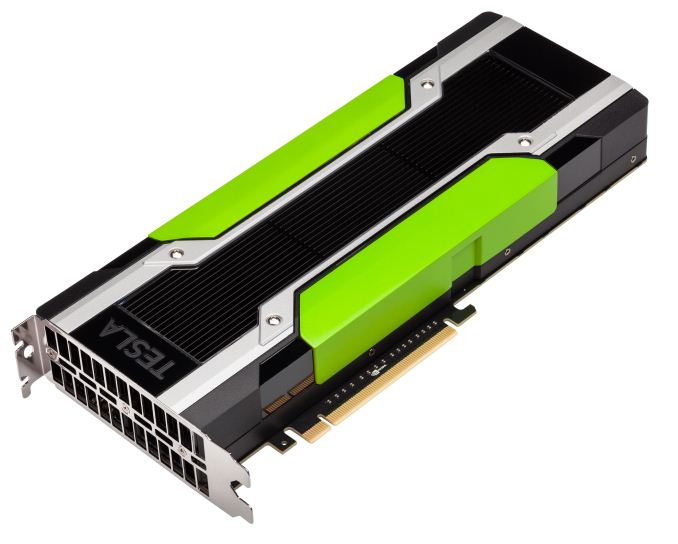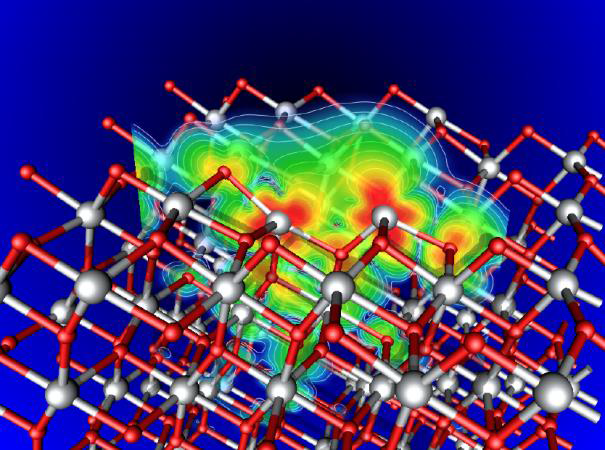Nvidia Tesla GPUs To Accelerate VASP Material Simulation Application
To make advancements in solar, chip design and electric cars, researchers in these fields have to study materials at the atomic level to understand their behavior better, which requires complex supercomputer simulations. One of the leading applications is VASP, which can model hundreds of individual atoms at the electron level so researchers can study their behavior and how they interact with each other.
Nvidia said this process can take days and even weeks to compute with a CPU-only system, but Nvidia has announced that VASP will soon run on its Tesla Accelerated Computing Platform. The company said that with Tesla GPU acceleration, scientists will be able to perform some calculations much faster and that certain simulations can be completed between 2.5-4 times as fast as CPU-only systems.
GPU acceleration of VASP, which stands for "Vienna Ab Initio Simulation Program," will free up supercomputer cycles around the world. VASP simulates a vast array of materials from glass, rubber, metals and many other materials, and as a result, the software is especially popular in universities and industry. Nvidia said VASP alone consumes up to 15 percent of the world's supercomputing power.
With Tesla K80 GPUs accelerating these clusters, it would free up significant resources for even further research into advanced materials or any other industry that relies on these systems for extremely complex calculations, such as energy exploration, simulating new drug compounds, or calculating weather patterns and climate change.
The new version of VASP isn't available just yet, but Nvidia expects to release it before the end of the year. Current VASP license holders will receive the update free of charge. You'll find VASP's website for more information about the software or to purchase a license.
Follow Kevin Carbotte @pumcypuhoy. Follow us on Facebook, Google+, RSS, Twitter and YouTube.
Get Tom's Hardware's best news and in-depth reviews, straight to your inbox.
Kevin Carbotte is a contributing writer for Tom's Hardware who primarily covers VR and AR hardware. He has been writing for us for more than four years.
-
cats_Paw Anyone also reads this and thinks "I think this is amazing but Im not sure since Im just a gamer and what Id really like to ask is if I can add that to my gaming rig to get a boost in FPS" ?Reply -
Vivacious Donut ReplyAnyone also reads this and thinks "I think this is amazing but Im not sure since Im just a gamer and what Id really like to ask is if I can add that to my gaming rig to get a boost in FPS" ?
I know, every time I see this I think 'where do I buy these for my rig?'
-
extremepenguin Any number of commercial suppliers sell the K80's, I managed to get a pretty good deal on mine at just a little north of 9K a pop. Much better than the advertised 12K they average for in Canada.Reply -
BrandonYoung "2.5 to 4" times faster? I would have expected more performance gains from using a GPGPU device vs a CPU.Reply
Edit: apparently the CPU they were comparing this to is a 12 core, E5-2697v2, so that is a bit better I guess. I'm still looking forward to a larger performance gain through optimizations to the (CUDA?) kernel. -
uglyduckling81 ReplyAny number of commercial suppliers sell the K80's, I managed to get a pretty good deal on mine at just a little north of 9K a pop. Much better than the advertised 12K they average for in Canada.
Ouch! Guess they saw you coming.
You can get one for about $4.2k from Amazon.
http://www.amazon.com/Nvidia-Accelerator-passive-cooling-900-22080-0000-000/dp/B00Q7O7PQA -
uglyduckling81 ReplyAny number of commercial suppliers sell the K80's, I managed to get a pretty good deal on mine at just a little north of 9K a pop. Much better than the advertised 12K they average for in Canada.
Ouch! Guess they saw you coming.
You can get one for about $4.2k from Amazon.
http://www.amazon.com/Nvidia-Accelerator-passive-cooling-900-22080-0000-000/dp/B00Q7O7PQA

